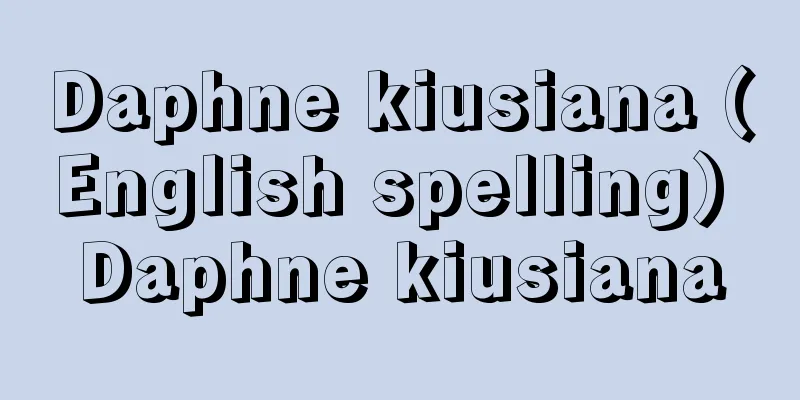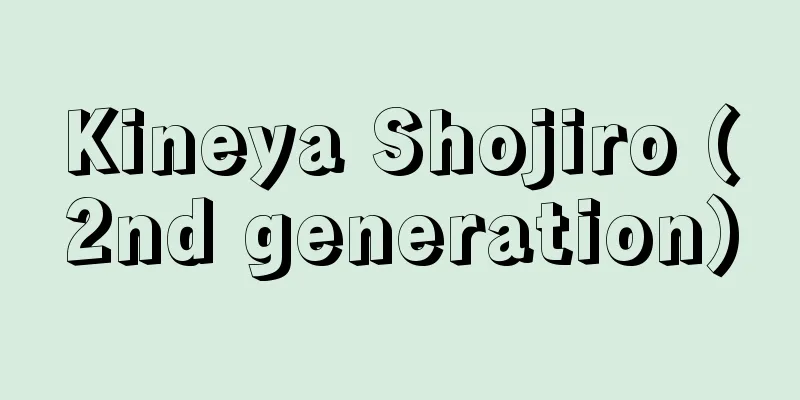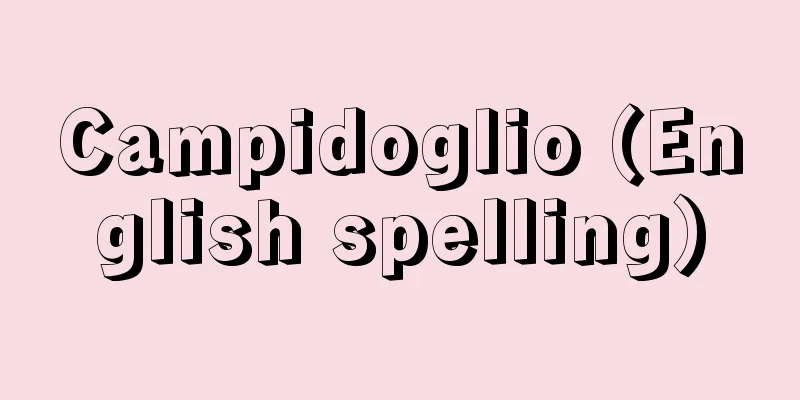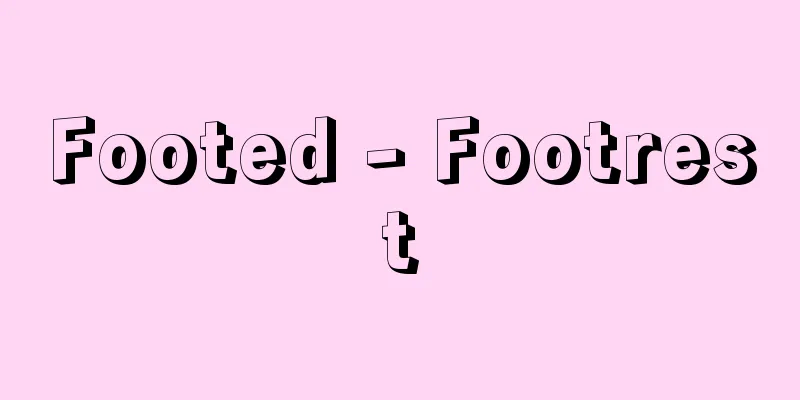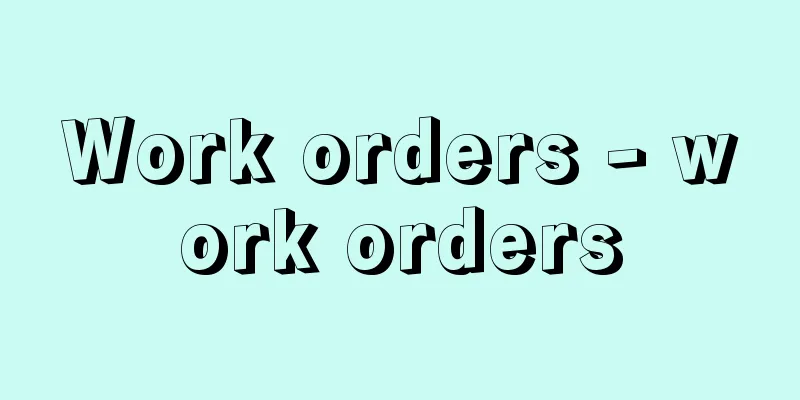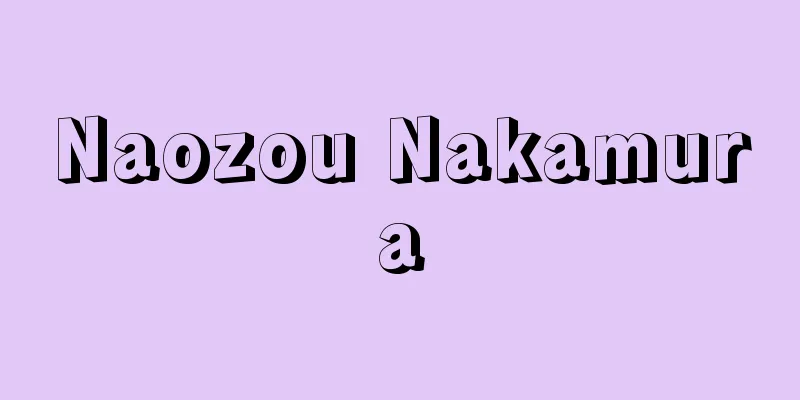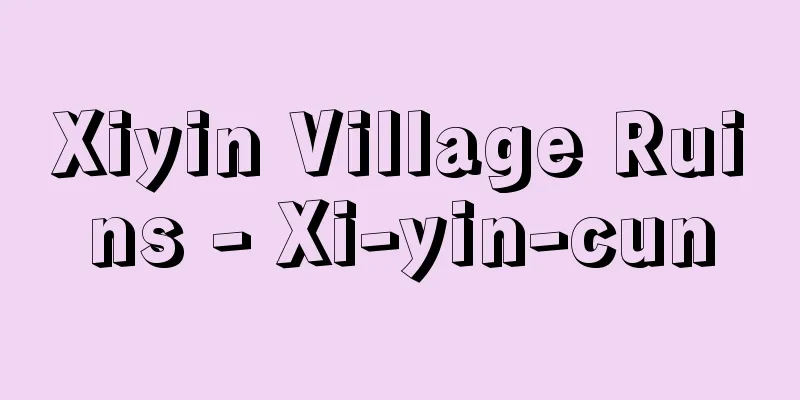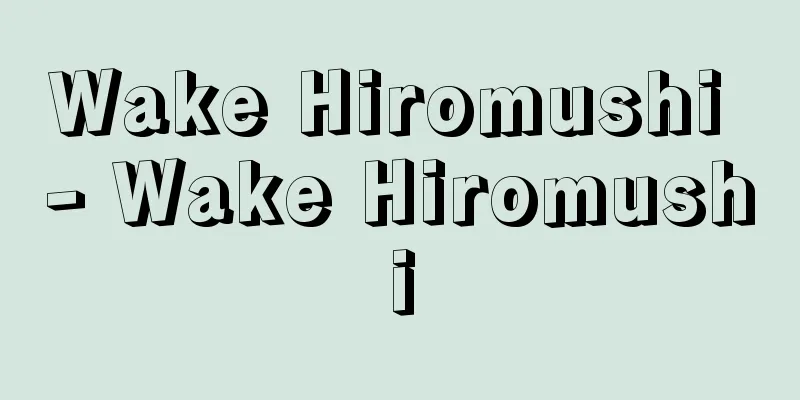Spanish-American War
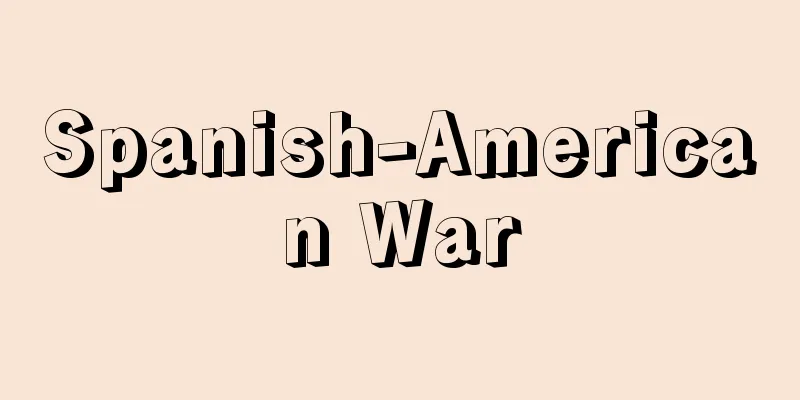
|
An imperialist war in which the United States intervened in the Spanish Cuban War of Independence in 1898, defeating Spain and seizing the colony. In February 1895, the Second War of Independence began in Cuba under the leadership of José Martí, and revolutionary forces liberated the eastern half of the island. In the autumn of 1897, a revolutionary government was established. Spain sent a large army and resorted to a brutal suppression campaign, leaving the island devastated by the prolonged unrest. Meanwhile, momentum for independence was building in the Philippines, also a Spanish territory, and an independence revolution broke out in August 1896. Although it was temporarily thwarted afterwards, it flared up again in 1898. The United States had an investment of about 50 million dollars in Cuba and an annual trade interest of over 100 million dollars, and also had a strategic interest in Cuba as a key point in the Caribbean that controlled the route to the Latin American market and the Central American Isthmus Canal region. The unrest in Cuba threatened these interests, and American public opinion, outraged by the atrocities of the Spanish army and sympathizing with "Free Cuba," wanted the United States to support the revolutionary army. The McKinley administration did not recognize the revolutionary army, and watched the situation hoping that Spain would restore peace to the island itself. However, when this hope was dashed in early 1898, the government turned to a solution through unilateral American intervention. The Delorme affair and the sinking of the Maine in February of that year, the incitement of the "yellow press" that took advantage of these events, the outrage of public opinion, and the shift in support of the war by the mainstream of the business world, all strengthened the government's resolve. Thus, on April 11, President McKinley sent a declaration of war to Congress, making clear his intention to intervene not to support the Republic of Cuba, but to protect America's own interests. After a heated debate, Congress approved this on the condition that Cuba would be given independence after peace was restored, and war was officially declared on April 25. The first battle was a surprise attack on Manila Bay by the Asiatic Fleet under Admiral Dewey on the Philippine front and the defeat of the Spanish fleet (May 1, 1898). Dewey then used Aguinaldo's Philippine Revolutionary Army to besiege Manila, and the ground forces that arrived later entered Manila on August 13. However, Aguinaldo's forces were expelled from Manila and retreated to Malolos. Meanwhile, in the Caribbean front, the main objective was to capture Santiago, Cuba, and at the end of June, 16,000 American troops landed with the support of the Cuban Revolutionary Army, and the Navy also defeated a Spanish fleet that was trying to escape from the port of Santiago. Finally, the American army and the revolutionary army attacked Santiago and took it on July 16, but the revolutionary army was refused participation in the signing of the surrender treaty. Thus, the battle ended after four months, and an armistice was signed on August 12, and the stage moved to the Paris Peace Conference. The peace treaty concluded between the United States and Spain on December 10, excluding representatives from the Philippines and Cuba, required Spain to abandon Cuba, cede the Philippines, Guam, and Puerto Rico to the United States, and pay Spain $20 million. As a result of this "Great Little War" (John Hay), the United States established a large colonial empire, including Hawaii, which it had annexed during the war, and embarked on the path of imperialism as a world power. However, the revolutions in Cuba and the Philippines were crushed under American military rule, and they ended up as a protectorate and a colony, respectively. [Akira Takahashi] Source: Shogakukan Encyclopedia Nipponica About Encyclopedia Nipponica Information | Legend |
|
スペイン領キューバの独立戦争に、1898年アメリカ合衆国が介入してスペインを破り、植民地を奪った帝国主義戦争。1895年2月、キューバでホセ・マルティ指導の第二次独立戦争が始まり、革命軍は島の東半分を解放し、1897年秋革命政府を樹立、スペインは大軍を派遣して残虐な鎮圧作戦に訴え、長引く動乱のため島は荒廃した。一方、同じくスペイン領のフィリピンでも独立の機運が高まり、1896年8月独立革命が勃発(ぼっぱつ)、その後一時挫折(ざせつ)したものの1898年に入って再燃していた。アメリカは、キューバに約5000万ドルの投資と年間1億ドルを超える貿易の利害をもち、また、ラテンアメリカ市場と中米地峡運河地域へのルートを扼(やく)するカリブ海の要衝として、キューバに戦略的関心を抱いていた。キューバの動乱はこの利害を脅かし、またスペイン軍の残虐行為を憤り「自由キューバ」に同情するアメリカ世論は、革命軍を援助するよう望んでいた。これに対してマッキンリー政府は、革命軍を承認せず、スペインが自ら島の平和を回復することを期待しつつ事態を見守っていたが、1898年の初めこの望みが断たれるに及んで、アメリカの一方的介入による解決に向かった。同年2月に起こったデローメ事件とメイン号爆沈事件、それらを利用した「黄色新聞」の扇動と世論の激高、および経済界主流の戦争支持への転換などが政府の決意を固めさせた。こうして4月11日マッキンリー大統領は議会に開戦教書を送り、キューバ共和国を支援するためではなく、アメリカ自身の利益を守るために干渉する意図を明らかにした。議会は激論のすえ、平和回復後キューバを独立させるという条件付きでこれを承認、4月25日正式に宣戦が布告された。 最初の戦闘は、フィリピン戦線でのデューイ提督麾下(きか)のアジア艦隊によるマニラ湾急襲とスペイン艦隊撃破であった(1898年5月1日)。デューイはその後アギナルドのフィリピン革命軍を利用してマニラを包囲し、のちに到着した地上軍が8月13日マニラに入城した。しかしアギナルド軍はマニラから排除され、マロロスへ退去した。一方、カリブ海戦線では、キューバのサンティアゴ攻略が主目標とされ6月末アメリカ陸軍1万6000がキューバ革命軍の援助のもとに上陸、海軍も、サンティアゴ港脱出を図ったスペイン艦隊を撃破した。最後にアメリカ軍と革命軍はサンティアゴを攻撃、7月16日陥落させたが、革命軍は降伏条約の調印参加を拒否された。こうして戦闘は4か月で終わって、8月12日休戦協定がなり、舞台はパリ講和会議に移った。フィリピンとキューバの代表を排除して12月10日にアメリカとスペインとの間で結ばれた講和条約は、スペインがキューバを放棄し、フィリピン、グアム、プエルト・リコをアメリカに割譲し、アメリカはスペインに2000万ドル支払うことを約した。この「すばらしい小戦争」(ジョン・ヘイ)の結果アメリカは、戦争中に併合したハワイをも含めて一大植民帝国を実現し、世界強国として帝国主義の道に乗り出した。しかしキューバとフィリピンの革命は、アメリカ軍政下で押しつぶされ、それぞれ保護国と植民地の運命をたどることになる。 [高橋 章] 出典 小学館 日本大百科全書(ニッポニカ)日本大百科全書(ニッポニカ)について 情報 | 凡例 |
>>: American sycamore - American sycamore
Recommend
Clinoptilolite
...Many known sources of zeolite are known, inclu...
lady's eardrop
...The flowers come in a wide variety of colors a...
ILO Convention No. 89 - ILO Convention No. 89
…(See the sections on Child Labor and Minor Labor...
Kusaurabenitake - Kusaurabenitake
A poisonous mushroom of the Basidiomycete family ...
Kurotani paper
This refers to various handmade Japanese paper, ma...
Urmia [Lake] - Urmia
A salt lake in northwestern Iran, Azerbaijan. Also...
Meštrović, Ivan
Born: August 15, 1883, Uruborje [Died] January 16,...
River void - Kawakakebiki
During the Edo period, this meant exempting farmer...
Spiny fish - Spiny fish
Acanthodii is one of the most primitive jawed fish...
Arthropathy
...Target diseases or symptoms include chronic ar...
Yunishigawa [Hot Spring] - Yunishigawa
This hot spring is located in Kuriyama Village, Sh...
Ondrejov Observatory - Ondrejov Observatory
…Together with the Runt Observatory and the Stock...
Pensacola (English spelling)
A city in northwest Florida, United States. It is ...
Komatsushima [city] - Komatsushima
A city facing Komatsushima Bay in the eastern part...
Gravitational collapse
The sudden contraction of a star due to its own gr...
